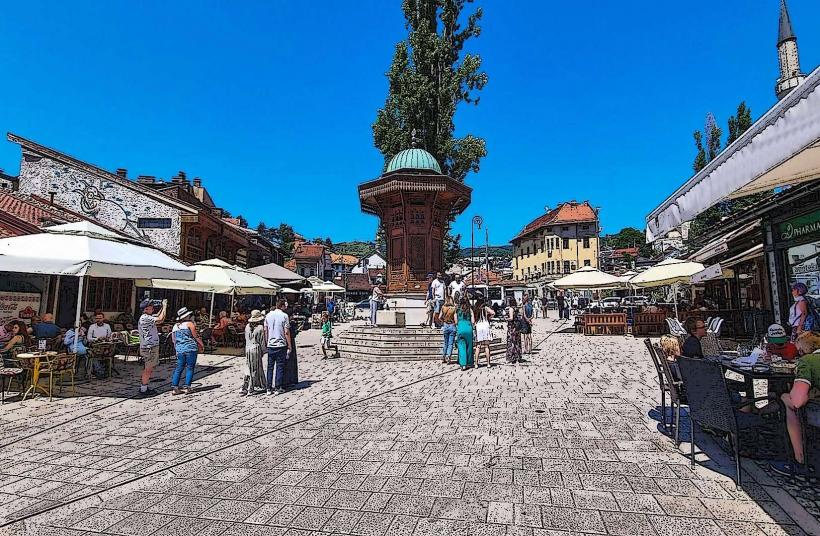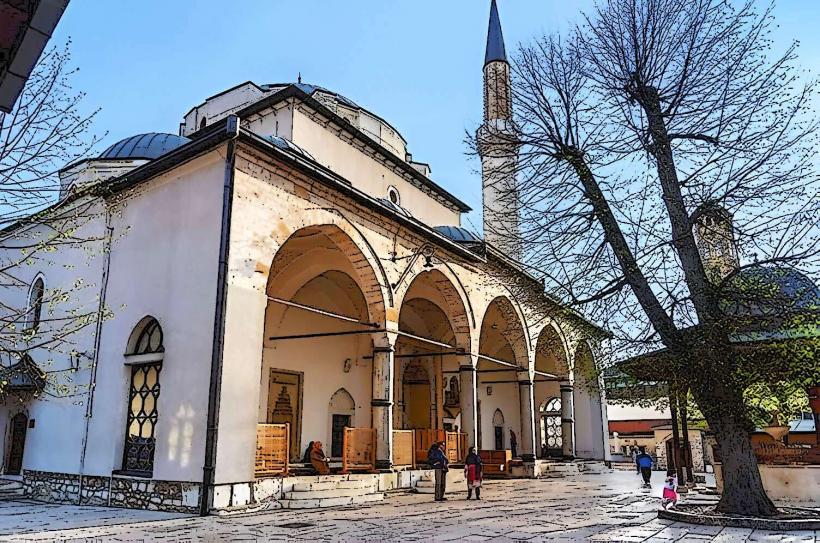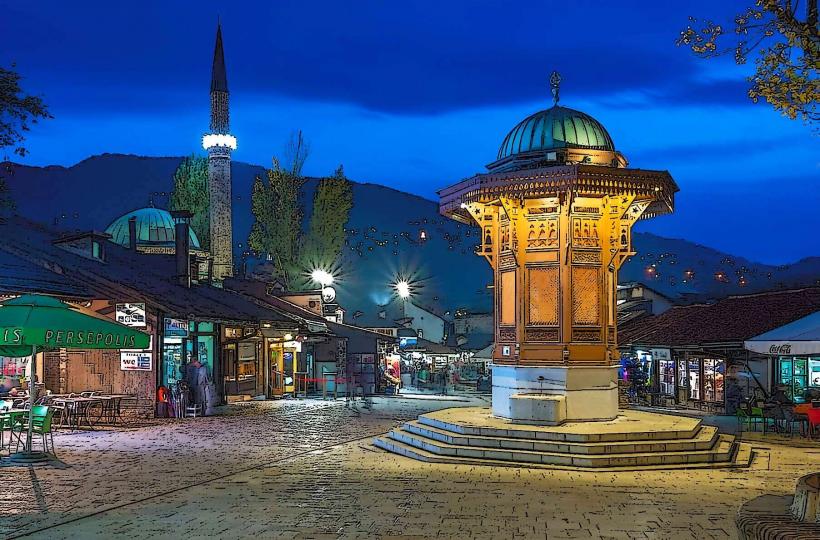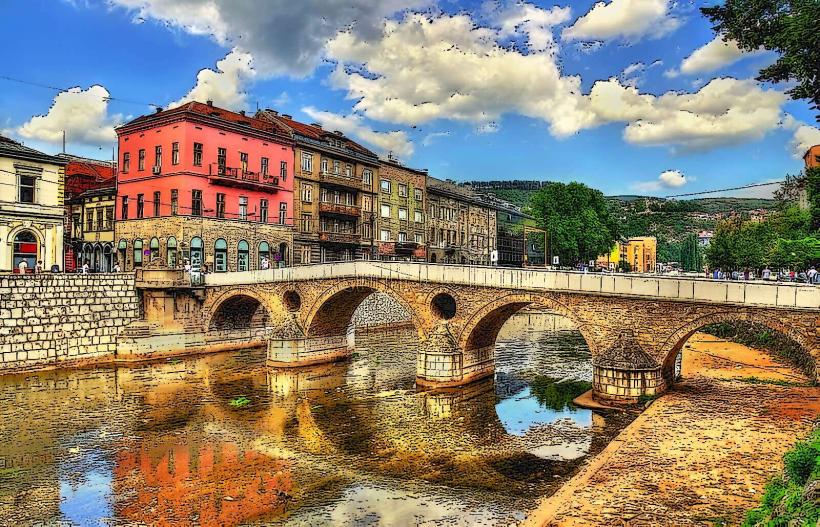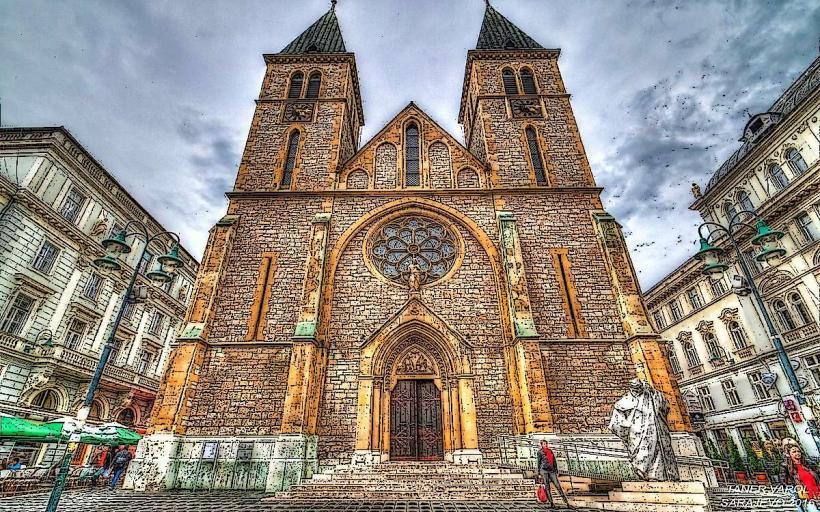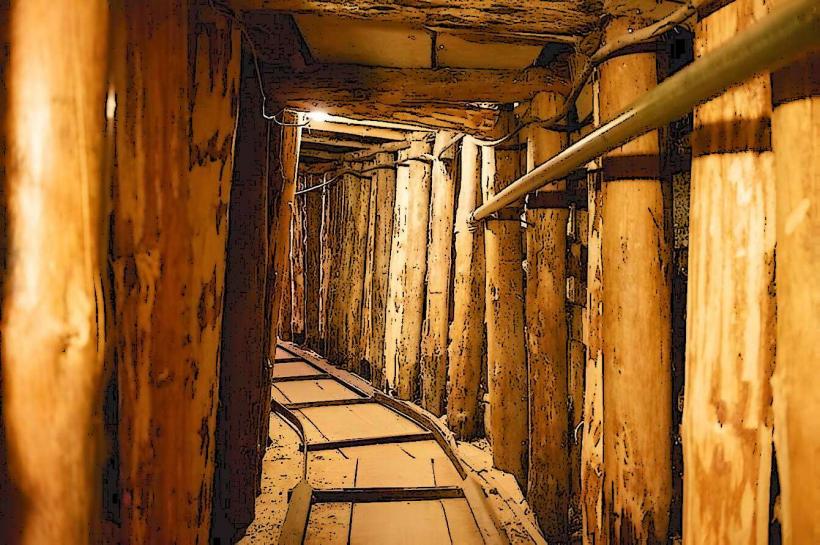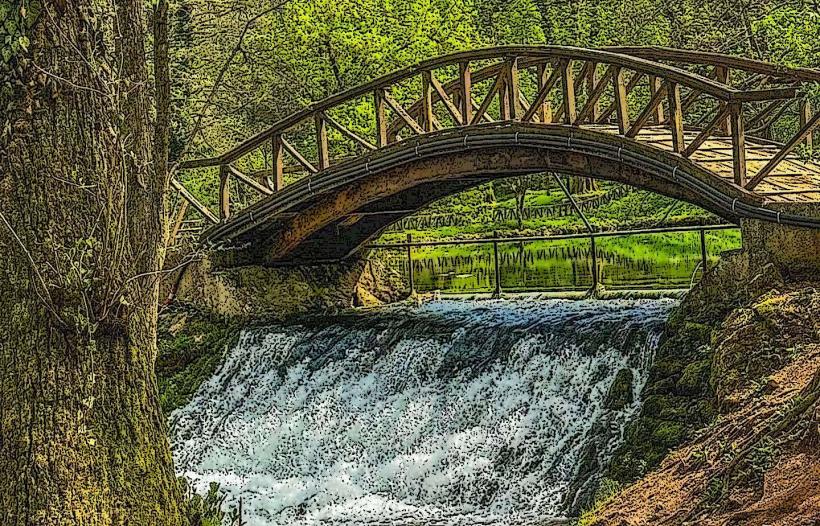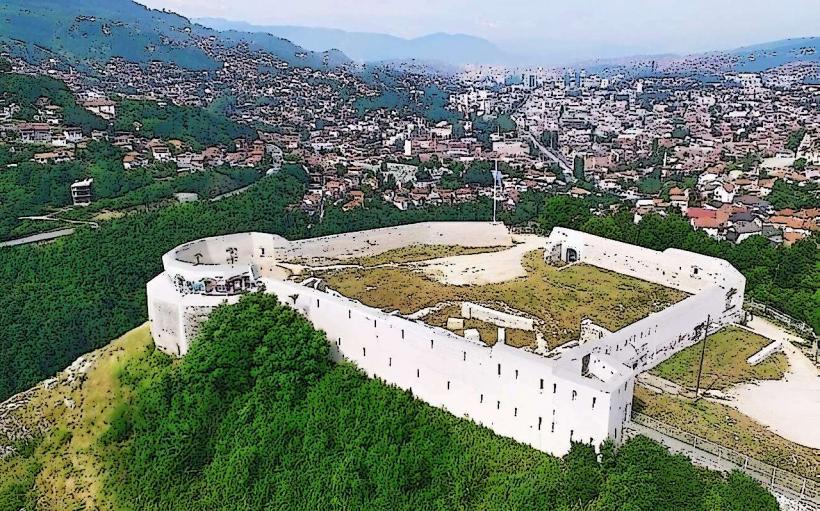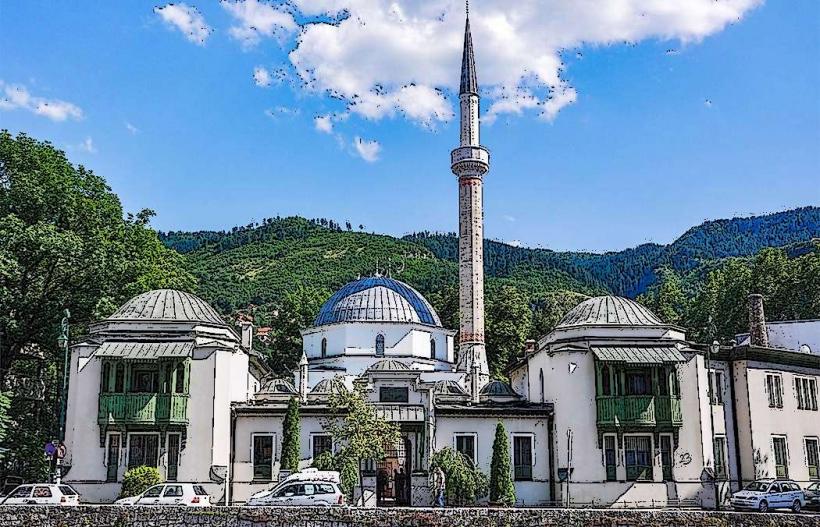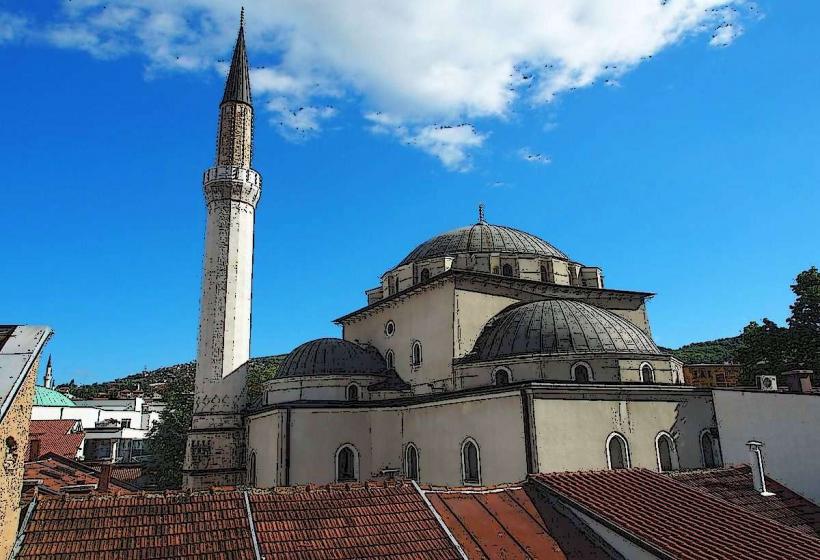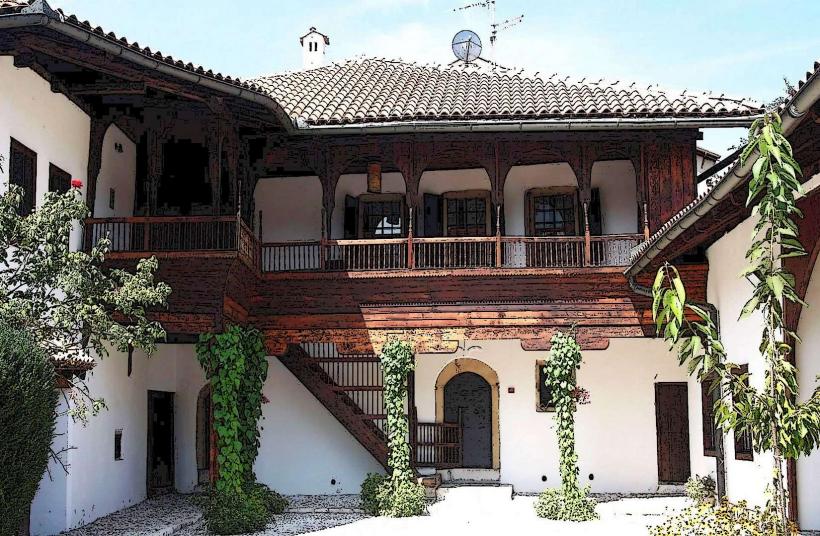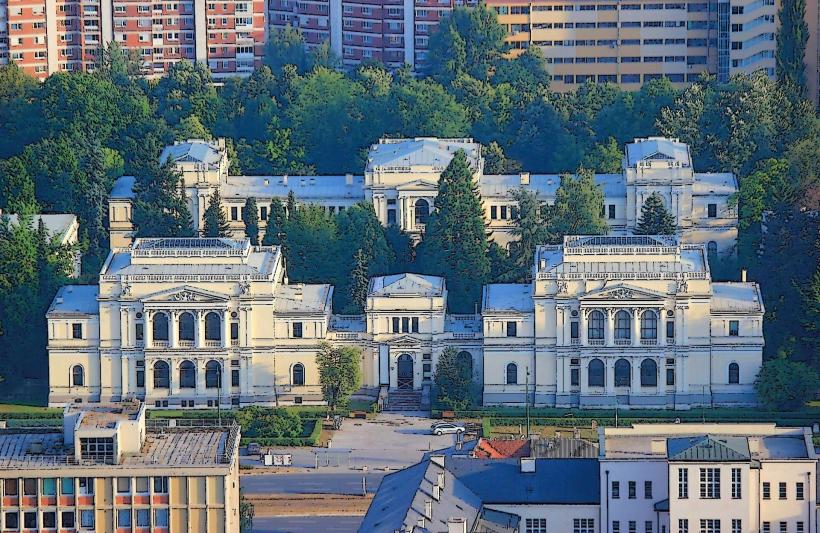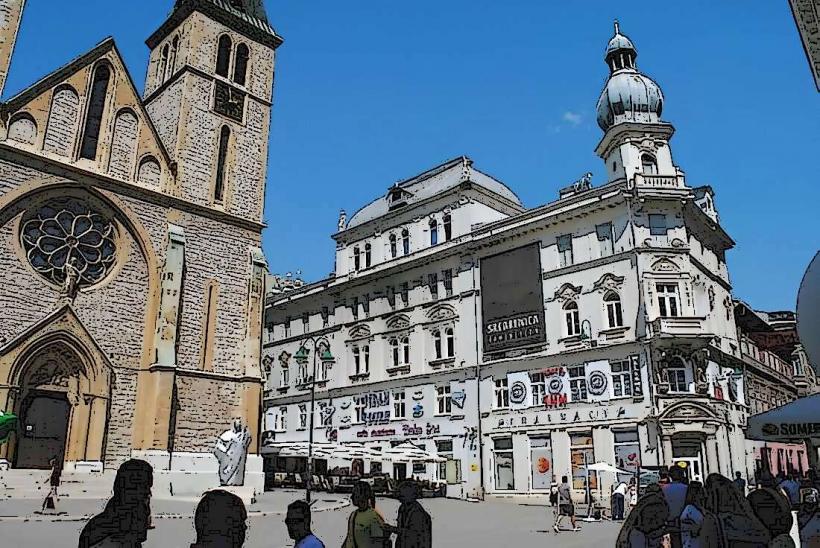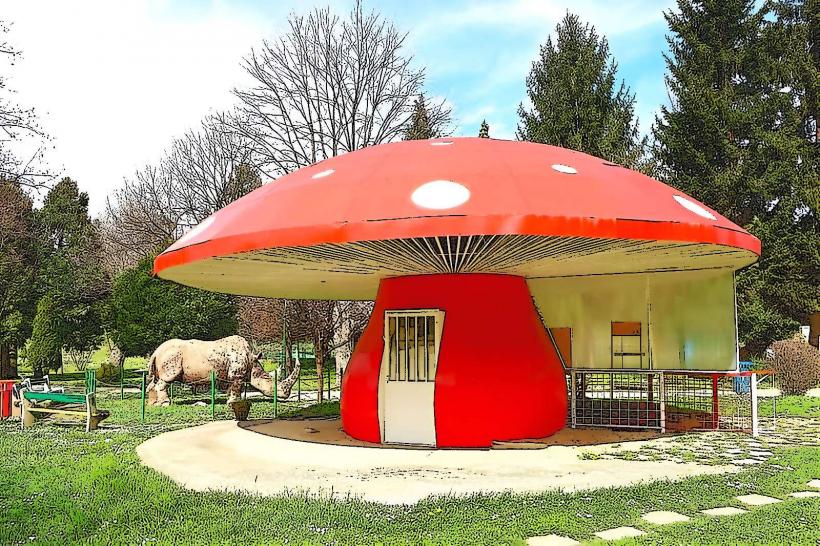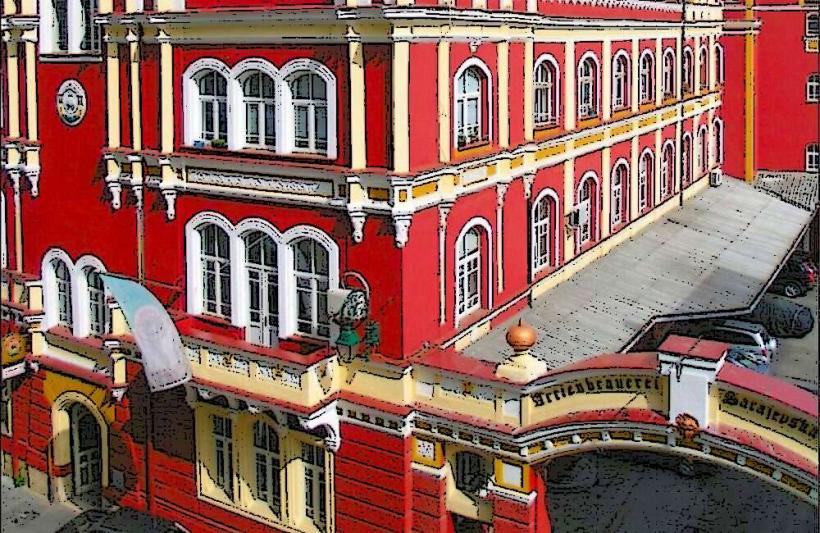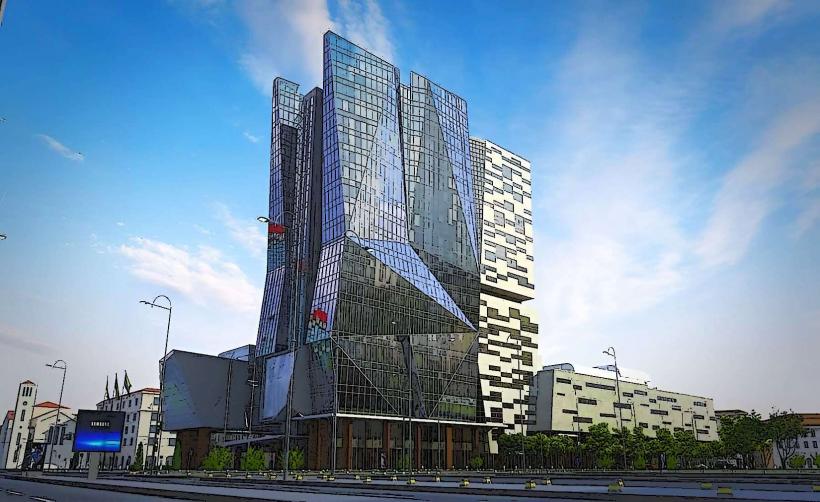Information
Landmark: Sarajevo City Hall (Vijećnica)City: Sarajevo
Country: Bosnia and Herzegovina
Continent: Europe
Sarajevo City Hall (Vijećnica) is one of the most iconic and historically significant buildings in Sarajevo, the capital of Bosnia and Herzegovina. Located in the city center, on the banks of the Miljacka River, it is a prime example of Neo-Moorish architecture and serves as a symbol of the city's rich cultural and historical heritage.
History
The building was designed by the architect Karel Pařík and was completed in 1896 during the time of the Austro-Hungarian Empire. It was originally constructed to house the Sarajevo City Hall and serve as the administrative center for the city. The architectural style reflects the Austro-Hungarian influence at the time, with Islamic, Byzantine, and Romanesque design elements incorporated into the structure. Its grand façade features intricate detailing, including arches, columns, and decorative motifs.
The City Hall was not just a governmental building but also an architectural landmark, representing the fusion of Eastern and Western design traditions. It was a symbol of Sarajevo’s status as an important administrative and cultural center in the Balkans under Austro-Hungarian rule.
The Siege of Sarajevo
During the Siege of Sarajevo (1992-1995), the building suffered significant damage from shelling and fire. The most devastating event was the fire in 1992 that destroyed much of the interior, including the building’s vast library. The loss of over 1.5 million books and rare manuscripts, including historical documents important to the city’s history, was an immense cultural tragedy for Sarajevo and Bosnia and Herzegovina.
Restoration and Reopening
After the war, the building remained in ruins for many years. However, with efforts spearheaded by the Bosnian government and international organizations, the Vijećnica was carefully restored over several years. The reconstruction project, completed in 2014, aimed to restore the building to its original splendor while preserving its historical character. The restoration of the library was also a priority, and many of the lost works have been slowly recovered, thanks to donations and efforts to digitize and preserve what remained.
In 2014, Sarajevo City Hall was reopened to the public and has since become a symbol of resilience, national pride, and the importance of preserving cultural heritage. It also serves as a cultural center, hosting exhibitions, concerts, and civic events. The building was also used as the venue for the Sarajevo Film Festival, one of the largest film festivals in Southeast Europe, further solidifying its place in contemporary Bosnian culture.
Architectural Features
The Vijećnica stands out due to its distinctive Neo-Moorish architectural style, combining elements of Islamic, Ottoman, and Western influences:
Facade: The building’s façade is a blend of red and yellow sandstone, featuring ornate arches, columns, and mosaic work. The most notable feature is the large central arch above the main entrance, which is flanked by smaller arches and decorative motifs.
Interior: The interior of the building is just as magnificent, with marble floors, elaborate ceilings, and stained-glass windows. The building’s central hall, with its high ceilings and grand staircases, is a striking feature that emphasizes the building’s imperial past.
Dome: The City Hall has a prominent dome, which is a feature inspired by Islamic architecture, reflecting the Ottoman influence on Sarajevo. This dome is covered in ceramic tiles and is a defining feature of the building's skyline.
Library: The interior of the building previously housed a vast library with rare manuscripts and books, particularly focused on the history and culture of Bosnia and Herzegovina. Despite the loss during the war, the building still maintains a library and continues to serve as a cultural space.
Cultural and Public Significance
Today, Sarajevo City Hall (Vijećnica) is not only an important historical landmark but also a venue for cultural activities. It serves as a reminder of the city’s diverse past, where Eastern and Western influences coexisted for centuries. The building is also used for official purposes, including civic ceremonies and important state events.
It remains one of the most photographed buildings in Sarajevo and an essential stop for tourists who wish to understand the city’s history and architectural beauty. Its restoration symbolizes the city’s recovery after the devastation of the war and serves as a testament to Sarajevo's resilience and its ongoing cultural significance.
Conclusion
Sarajevo City Hall (Vijećnica) is a historical treasure and an architectural marvel, representing the fusion of different cultural influences that have shaped Sarajevo throughout its history. Today, it stands as a symbol of hope and resilience, offering both locals and visitors a deeper connection to Sarajevo's past and its ongoing cultural evolution.

